by Dot Cannon
An anti-cancer vaccine could easily be part of our future.
Preventing PTSD is something the U.S. military is currently testing.
And doctors are discovering that virtual reality can reduce pain more effectively than narcotics.
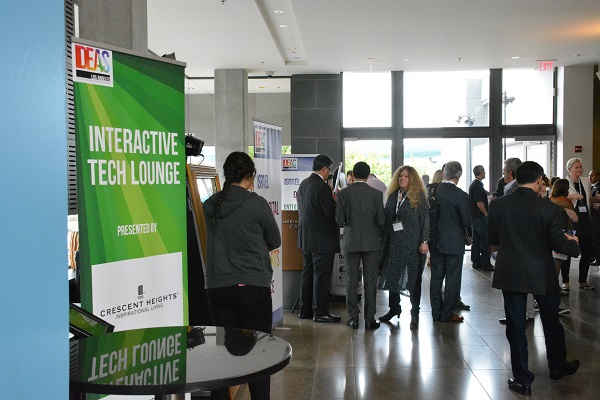
These were just three highlights of Day 1 of the second IDEAS Los Angeles conference, on Wednesday in Santa Monica.
IDEAS Los Angeles, presented by Tel Aviv University-American Friends, is a two-day event for innovators, thought leaders, philanthropists, investors and entrepreneurs. Wednesday’s eclectic program included tracks on media and entertainment, lifestyle and health, and general information.
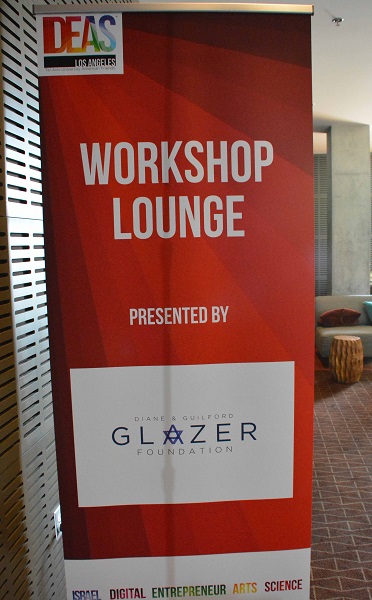
Small-group workshops, for innovators and entrepreneurs, were part of the mix.
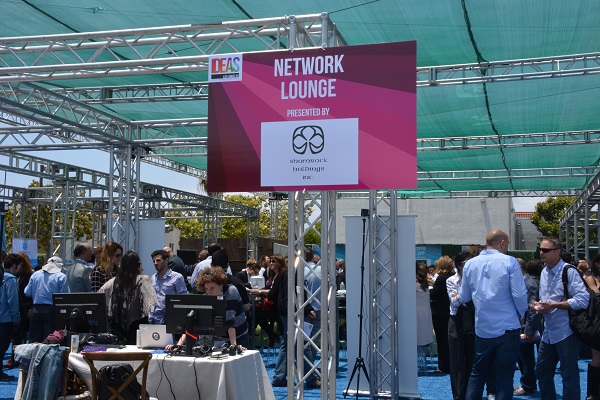
So was lots of networking.
And there were quite a few “fun” lifestyle elements. This is from Partyworks Interactive…
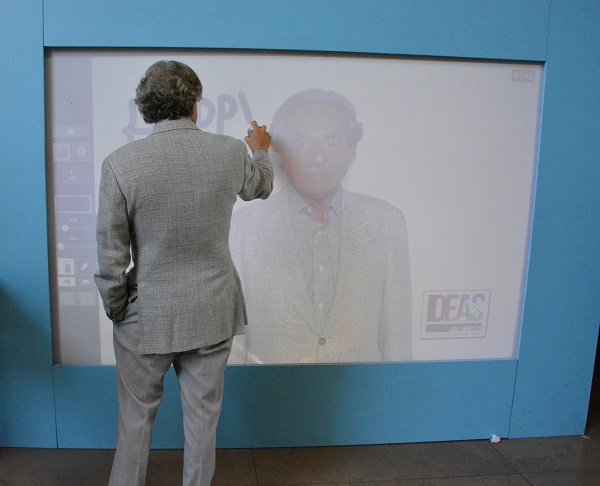
It’s a white screen for parties, where users “graffiti” their pictures using a virtual can of spray paint! (And yes, you get to choose your colors from an on-screen palette!)
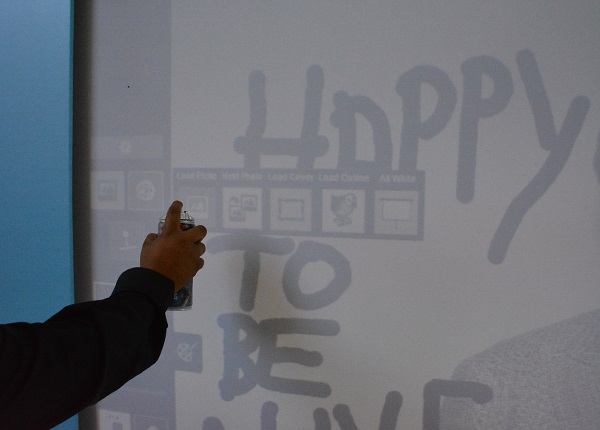
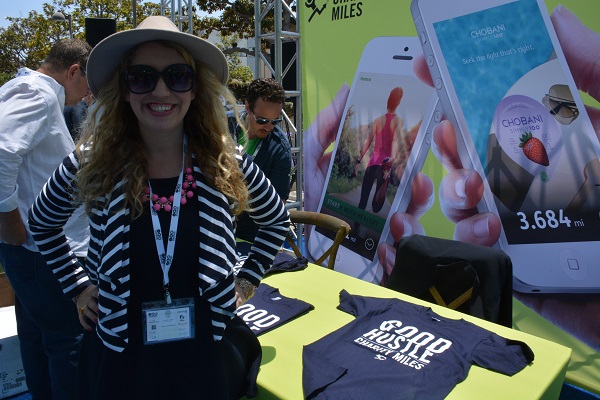
Startups exhibiting their products included Charity Miles, an app that allows users to raise money for charity by walking, running or biking. And users don’t have to hit up friends and family to donate–the funds come from Charity Miles’ sponsors!
One of the most exciting parts of the day, was the way speakers explored the question, “what if…?”.
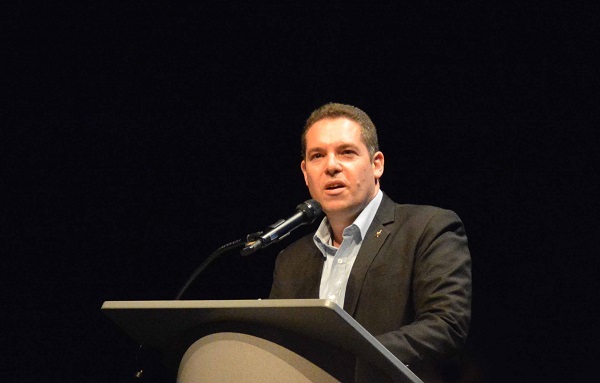
“Imagine that you can print a human heart with a 3D printer…and patch it like your jeans,” said Amos Elad, of Tel Aviv University, in his welcoming remarks. “Doctors could monitor the patient from all over the world.”

The morning’s first moderated discussion, on virtual reality and augmented reality, had a similar sense of reaching far beyond current boundaries.
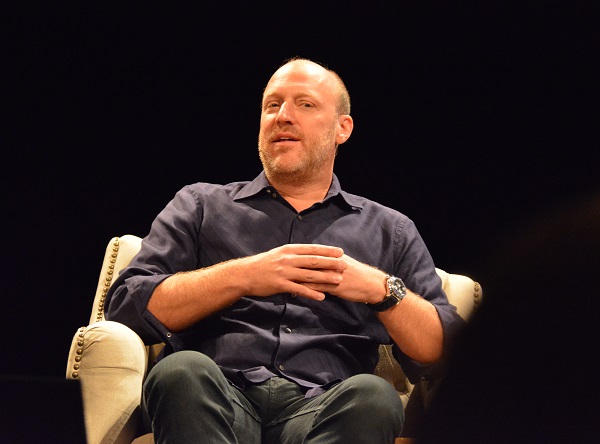
“We are moving into the experience age,” said Caspar von Winterfeldt, of Baron VR. “We are now in a position (to actually transform the material we see) into experiences.”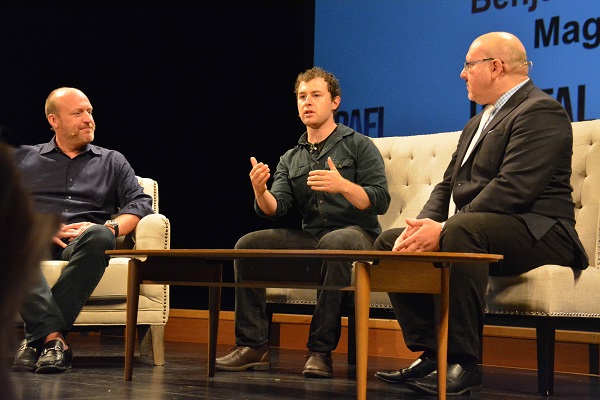
Benjamin Reinhardt, of Magic Leap, talked with moderator Seth Shapiro about the differences between virtual and augmented reality. A computer’s interaction, he explained, takes virtual reality a step further. “With augmented reality, you start having things where it’s sensing reality and you have mixed reality (as it senses what’s around it).”
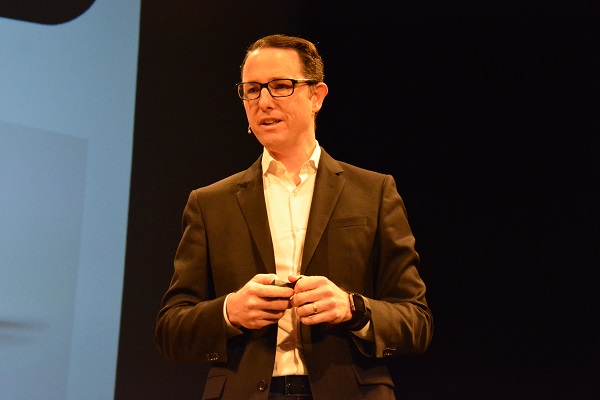
But nowhere was the idea of virtual-reality use more mind-blowing than when Dr. Brennan Spiegel, of Cedars-Sinai Health System, took the stage later that afternoon.
“If we are going to engage our patients, we have to reach beyond the four walls of a hospital,” Dr. Spiegel said. Cedars-Sinai, he said, was now using a virtual reality system that helped patients “escape” their hospital rooms. And by using virtual reality, he and his staff were able to demonstrate a considerable reduction in pain.
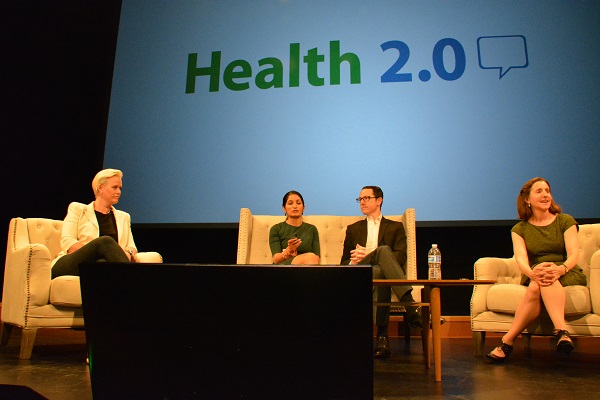
Prevention and taking charge of your own health through digital technology was a theme of several of the presentations.
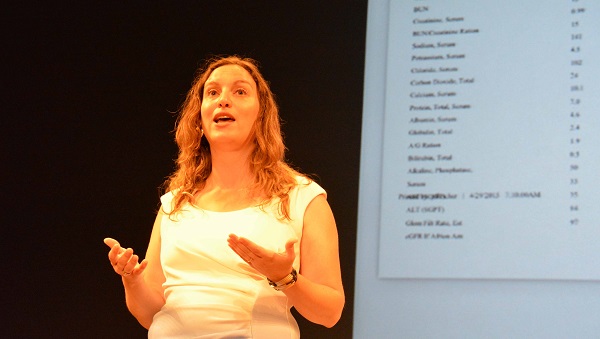
“Do you understand these numbers?” asked Maayan Cohen, founder of Hello Heart. She was showing the audience the figures usually included in standard lab-test results…
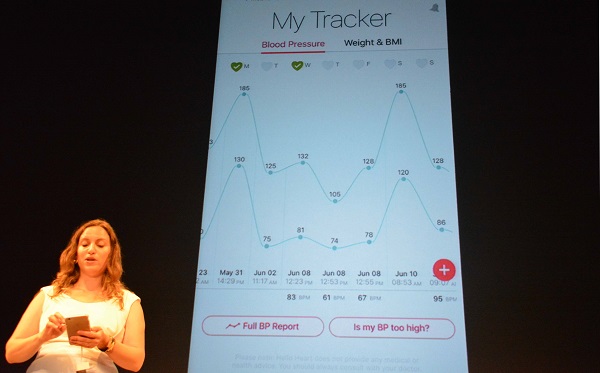
…then, the ways her app translates the data into understandable updates. Users, she said, reported much higher success rates in lowering their blood pressure than those in standard health-care management programs.
“We’ve got 21- to 25-point systolic improvement. That’s better than anything out there,” she said.
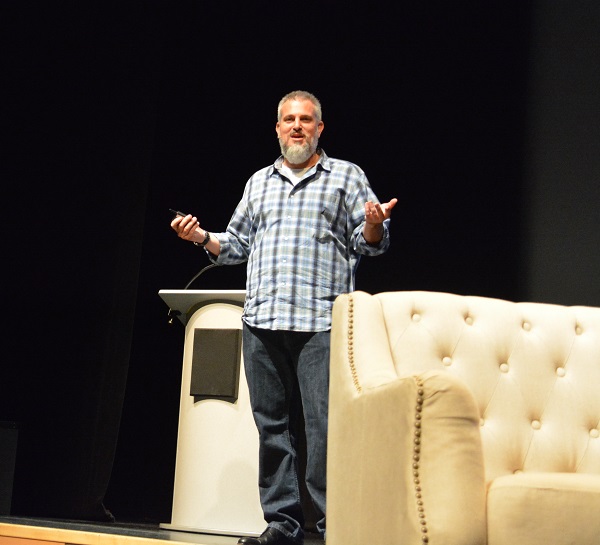
Dr. Yair Bar Haim, of Tel Aviv University, started his presentation with an interesting question. “How can you prevent PTSD? Can we create some sort of inoculation for it?”
He went on to explain that some prevention was, indeed, possible. Showing the audience a picture of a woman with a threatening expression, he explained that changing someone’s attention pattern was a matter of getting that person to focus on the threat.
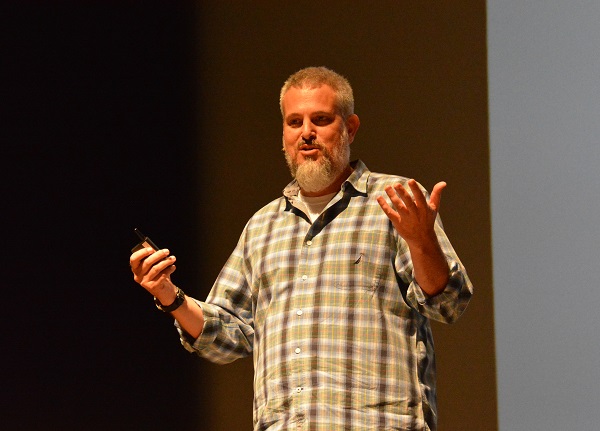
“We took a whole brigade (in Israel) and trained them to attend toward threat,” Dr. Bar Haim said. After war broke out in Israel, he and his staff found that some of the soldiers they’d trained did not develop PTSD. The ratio, though, was small. To prevent PTSD in one soldier, nineteen had to be trained.
Dr. Bar Haim said the U.S. Army was now conducting a similar trial. “In Washington, we trained a whole brigade that is now in Afghanistan, and we’re waiting for them to come back to see the result.”
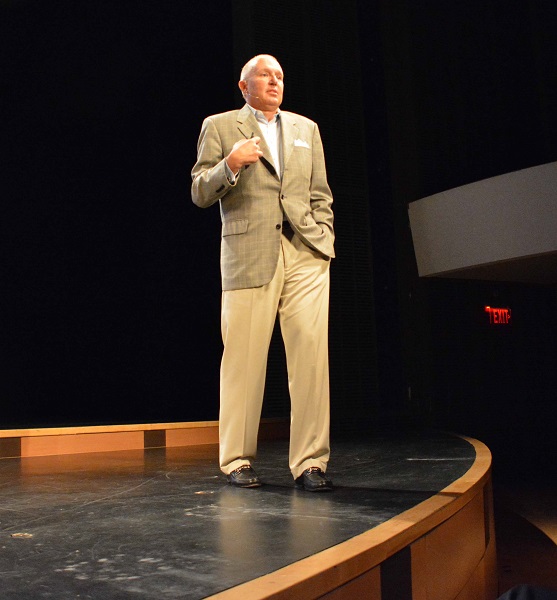
Next, Robert Watson, of NantHealth, told the audience that his company had just received approval for a new kind of cancer test, called GPS Cancer™, on June 1.
“We think this test will change the way cancer patients are cared for,” he said. “It measures everything. And measuring everything is critical to a cancer patient.”
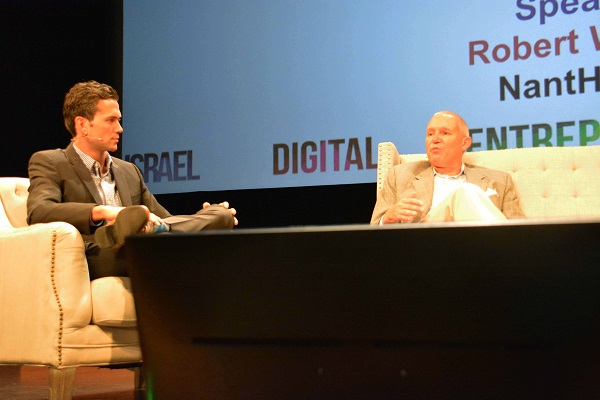
Speaking with moderator Jason Booth a few minutes later, he also made an exciting prediction:
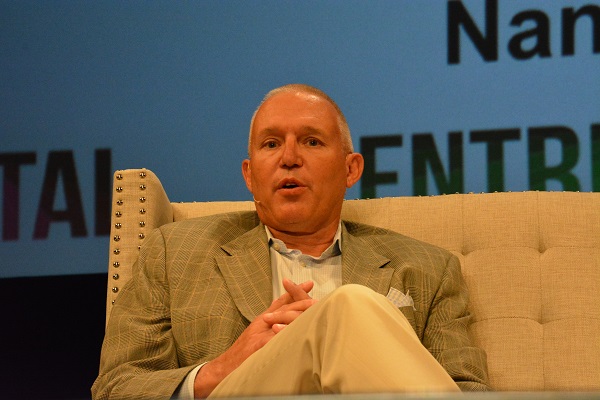
“There’ll be a cancer vaccine. We’ll be able to predict, from your blood, if you’re a candidate to get cancer. I think that’ll happen in my lifetime.”
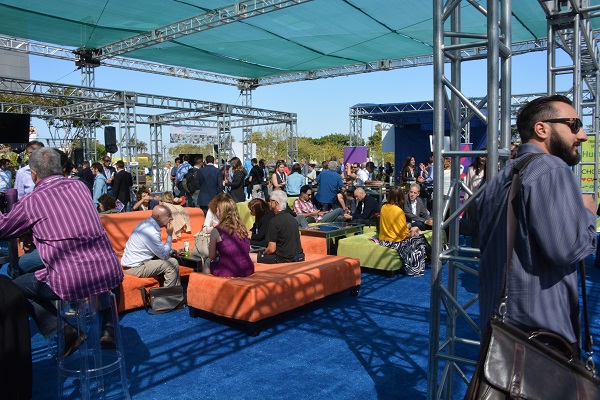
Stretching beyond limits, imagination and getting to visit with innovators from as far away as Switzerland, made Day 1 of IDEAS Los Angeles a great one! We can’t wait to see tomorrow–in more ways than one.
